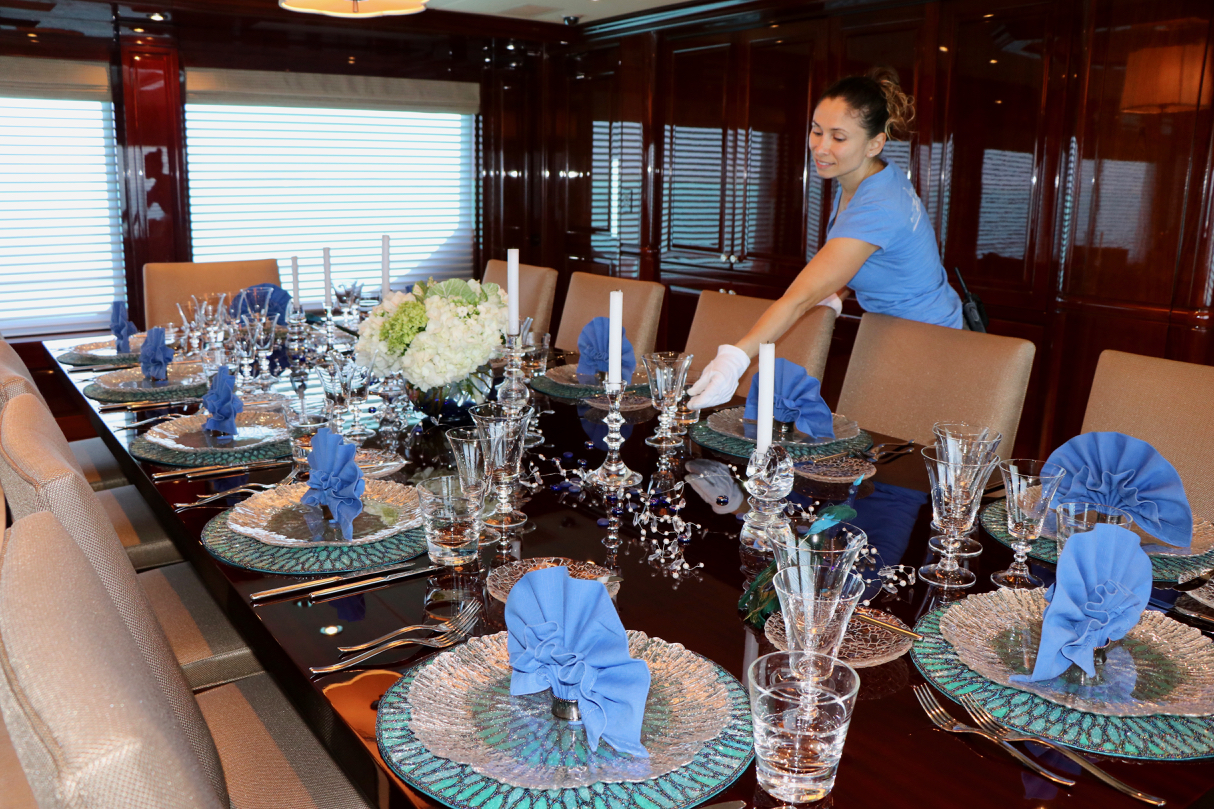Get Certified Now to Start a Yachting Career This Summer

So you’ve decided to start a new career working on a superyacht!
Congratulations -- you’re in for an adventure!
But first -- you need to get certified. Just like you need to have a driver’s license to operate a car, or CPR to work as a lifeguard at your community pool, working on a superyacht demands some basic skills and qualifications.
Without these certifications, no captain will even think of hiring you. So take the time to learn the ropes and you’ll be ready in no time!
Curious about what types of training you’ll need to take, and what you can expect from the experience?
Here, we’ll explain the basic training so you’ll know where to begin.
Required For All Yacht Crew
STCW - Basic Safety Training Classes
This is the basic, entry-level training required for all crewmembers working on commercial vessels. STCW is short for Standards of Training, Certification and Watchkeeping for Seafarers. This International Certification was initially adopted in 1978 by the International Maritime Organization (IMO), and was amended in 1995 and in 2010.
The STCW takes five days of dedicated in-class to complete, and you’ll walk away with basic experience in safety at sea, first aid & CPR, fire fighting, and proficiency in security awareness (PSA).

At the end of your STCW training, you’ll be expected to be able to respond in an emergency situation, demonstrate survival skills and support to others in danger, and understand the basics of survival at sea. The certification includes both written and practical exercises.
The good thing about STCW is that, since it’s mandatory, it’s also widely available. Offered in any major yachting center, you’ll have a lot of choice in terms of when and where you complete this training.
The ENG1
Your ENG1 isn’t actually a training course, but it’s still a critical requirement. It’s a certificate issued by an approved medical practitioner showing you are medically fit to work on a yacht. The ENG1 has to be issued by a specifically recognized doctor, so be sure to find a medical professional who is able to issue your ENG1.
Other Training
Once you’ve got your STCW, you can start to explore additional specialty training. There are a full range of training courses that will help you to develop your skills as a yacht crewmember, whether you choose to go into the interior, the deck, engineering or galley department.
If you’re breaking into the industry, holding one of these additional certifications will make you more competitive. Here are some options to consider:
Interior Crew Training
While training courses for interior crew aren’t required, over the past few years the Professional Yachting Association has been working to develop and promote Interior Crew Training and Certification Courses that are becoming more widely available.

One of these programs aims to promote a more universal standard of interior service qualifications. Called GUEST -- Guidelines for Unified Excellence Service Training -- this program includes instruction at all levels, from beginner to management.
As a newcomer to the yachting world, you’ll need to start with the four Introductory Course modules. Along with your STCW, you’ll then be recognized as a PYA-endorsed Yacht Junior Steward with a Certificate of Competence. These modules include Interior Introduction Course, Interior Basic Food Service Course, Wine & Cocktail Introduction Course, and Food Hygiene Course/Catering.
Small Power Boat Operator
This course will give you the skill and confidence to operate small boats. Why is this handy? When your yacht anchors in the harbor and the captain needs someone to drive the tender to and from shore, you’ll be able to do so if you hold this certification. If you’re interested in working as deck crew, consider this a priority as you start on your additional training.

Deckhand Courses
There is a wide range of training available from recreational to professional, each of which will give you exposure to the basics of seamanship and allow you to build skills you’ll put to use as a deckhand.
Once again, these are nice options; you’ll be able to learn on the job as a new deckhand, but coming into your job hunt with a deeper set of skills might help to set you apart from the crowd as you walk the docks.
VHF Radio Course
Yachts still rely on radio communications, particularly when at sea. Showing up on day one with the confidence and capability to operate this critical communications line will help show your commitment and preparedness for your new career.

Engineering
If you’re interested in working in the engineering department, it will help to enroll in the four-five day Approved Engine Course (AEC.) In this training, you’ll learn about diesel engines, from the theoretical to the practical. You’ll be able to service engines and evaluate potential problems while preventing damage or breakdowns.
This is the first training course towards becoming an engineering officer, so if you’re thinking of going down that path, it’s where you’ll start. And even if you don’t end up working as an engineer, this course is a great option for any deckhand who wants to deepen their knowledge and skill set.
Superyacht Chef Academy
Want to be a superyacht chef? Our signature program Superyacht Chef Academy gives you everything you need to confidently step into the world of yachting as a high-end yacht chef. The 5-week, online experience is currently closed to enrollment but will open again in a few weeks.
Go here to join the waitlist and you'll be the first to know when the program opens again soon.
Stay connected with news and updates!
Join FY Insiders to receive the latest news and updates from our team.
Don't worry, your information will not be shared.

